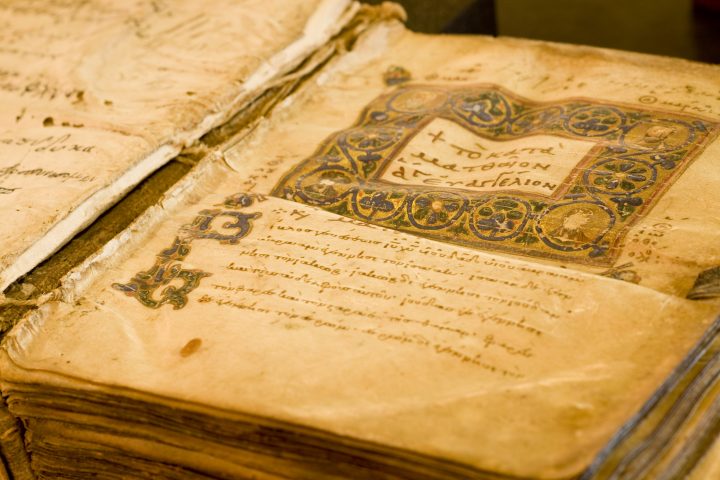About the Medieval Greek Language
Comments Off on About the Medieval Greek Language
 During the Middle Ages, the Byzantine Empire used a language known as Medieval Greek, which was a continuation of the Classical Greek language. This language, also called Byzantine Greek, was the empire’s official language and was used in literature, poetry, and religious texts. Medieval Greek was characterized by several unique features, including a simplified grammar system, the use of diacritical marks, and the inclusion of loanwords from other languages, such as Latin and Slavic.
During the Middle Ages, the Byzantine Empire used a language known as Medieval Greek, which was a continuation of the Classical Greek language. This language, also called Byzantine Greek, was the empire’s official language and was used in literature, poetry, and religious texts. Medieval Greek was characterized by several unique features, including a simplified grammar system, the use of diacritical marks, and the inclusion of loanwords from other languages, such as Latin and Slavic.
Characteristics of Medieval Greek
The language also significantly influenced the development of the modern Greek language, which is still spoken today. Despite the fall of Constantinople in 1453, Medieval Greek continued to be used in various forms until the 19th century, when modern Greek replaced it as the official language of Greece. Today, Medieval Greek remains an important part of the history and cultural heritage of the Byzantine Empire and serves as a fascinating subject of study for linguists and scholars.
Medieval Greek is similar to Classical Greek but has undergone significant changes in phonetics, morphology, and syntax. Over time, some vowel differences disappeared, and complex consonant clusters were simplified, shifting from tones to stress for accentuation. The language’s morphology was streamlined by simplifying some noun declensions and verb conjugation patterns. The incorporation of loanwords from other languages, including Latin, Slavic, Arabic, and Turkish, was influenced by the cosmopolitan environment of the Byzantine Empire.
Influences on Medieval Greek
Medieval Greek was shaped by various influences throughout its existence. During the Hellenistic era, the language started integrating words from other languages, which continued into the Byzantine period. Latin significantly impacted the Crusader era and the subsequent dominance of the Franks and Venetians in Greece. This contact with Latin gave rise to a hybrid form of Greek, now called “Frankish Greek.” As Christianity spread, new religious vocabulary and loanwords from Latin and other languages were introduced and assimilated into the language.
Literary and Scholarly Significance
During the Byzantine Empire, Medieval Greek played a crucial role in administrative, legal, and ecclesiastical functions. This allowed Byzantine intellectuals to continue studying and writing about Classical Greek literature, philosophy, and science, essential in preserving and spreading ancient Greek civilization. Thanks to their efforts, many significant works by ancient Greek authors were saved from being forgotten. These scholars contributed to Greek literature by translating and providing commentary on these works in Medieval Greek. The efforts of essential figures such as Michael Psellos and John Tzetzes were instrumental in shaping Medieval Greek literature. As a result, the language served as a vital tool in preserving ancient Greek civilization.
Because it developed from Classical Greek, Medieval Greek connected the ancient world to today’s modern Greek. Because of its proximity to other languages and cultural influences, it underwent profound shifts in phonetics, morphology, and lexicon. Despite these developments, Medieval Greek was an important medium for transmitting ancient Greek learning, literature, and philosophy. Greek intellectual history is woven into the world’s fabric thanks to Byzantine intellectuals’ contributions. Insights into the linguistic and cultural history of the Byzantine Empire and its continuing impact on the Greek-speaking world can be gained via the study of Medieval Greek.
Source:
Categorized in: Modern Greek History
This post was written by Greek Boston





